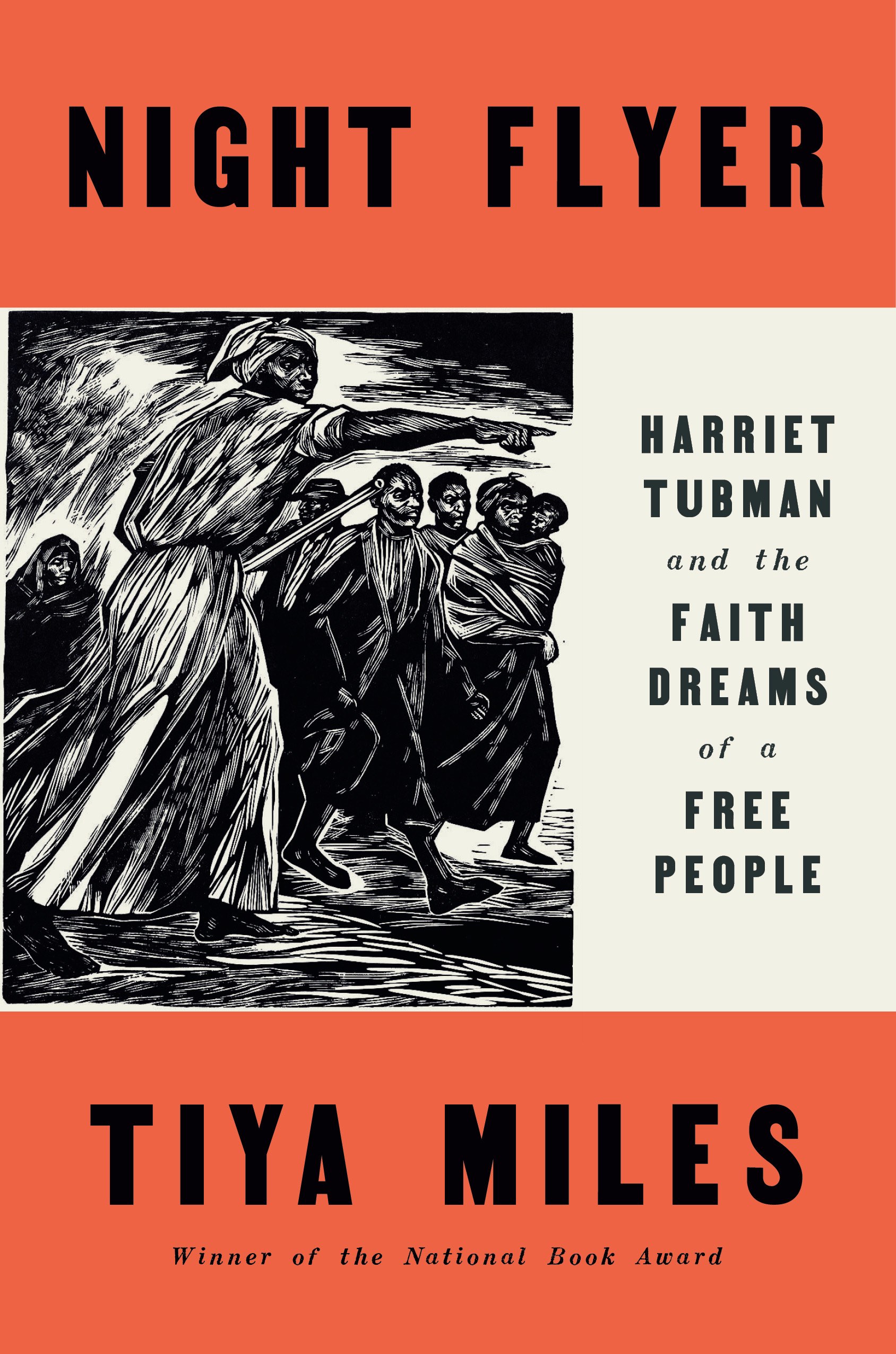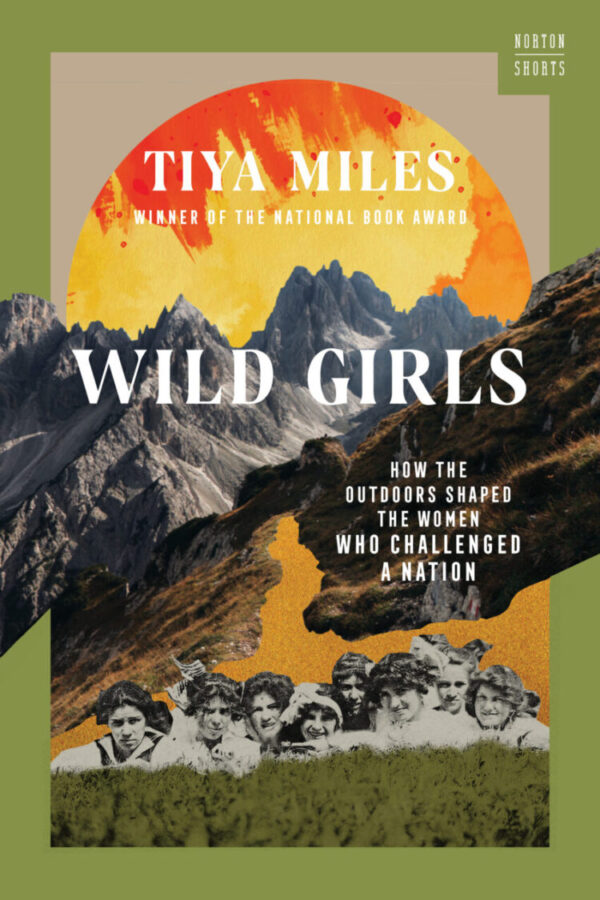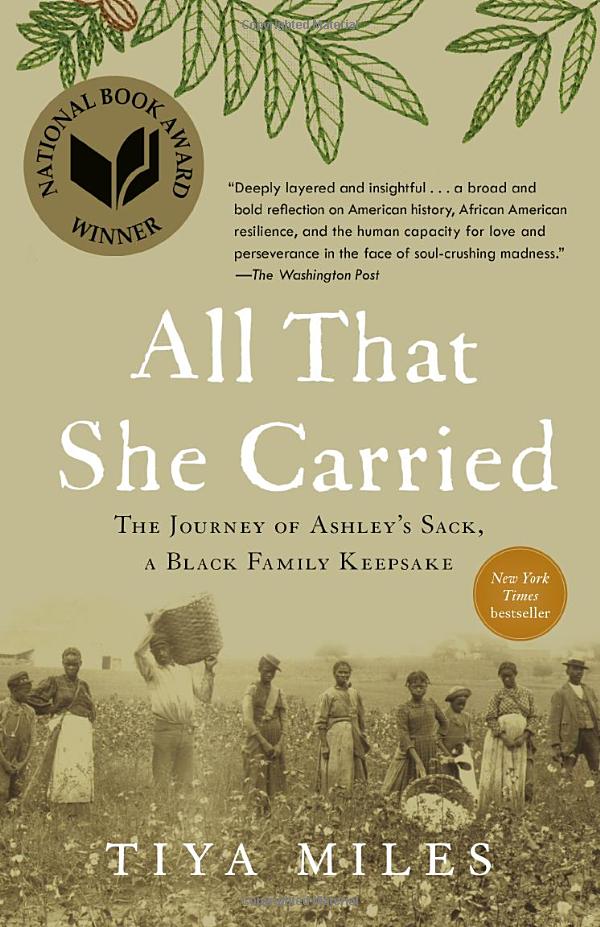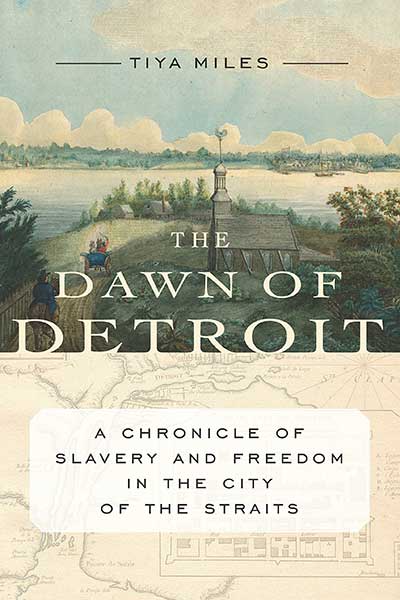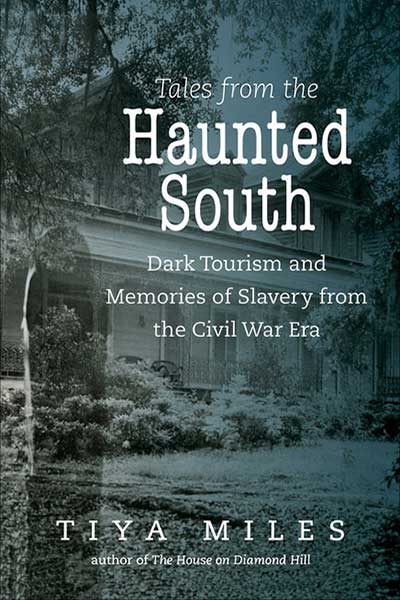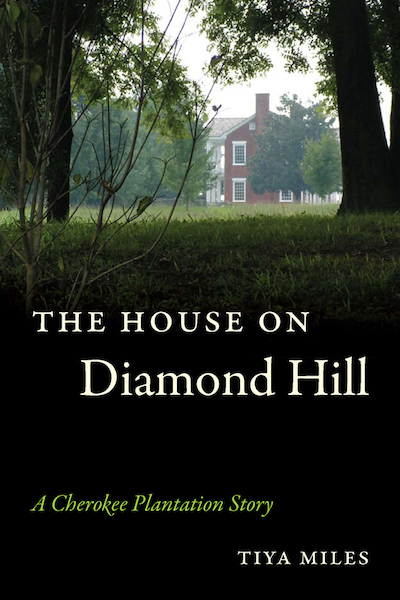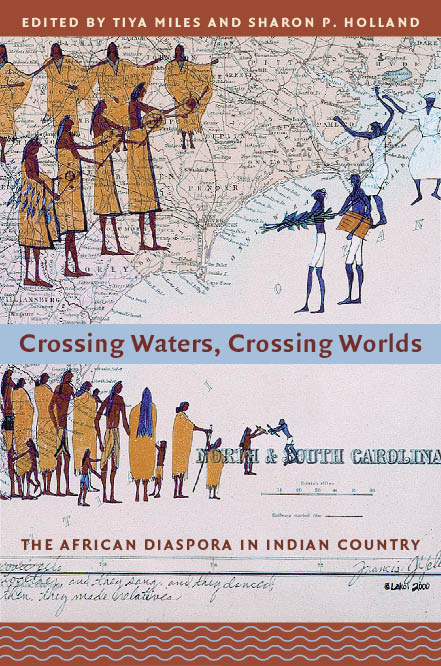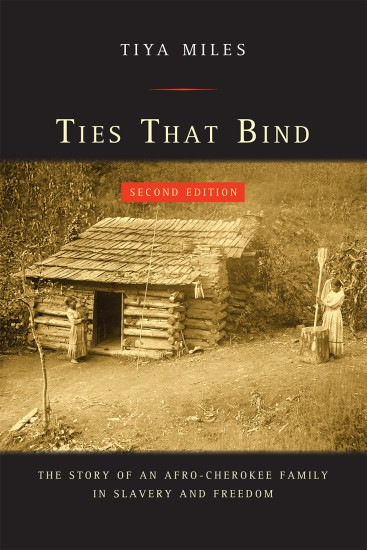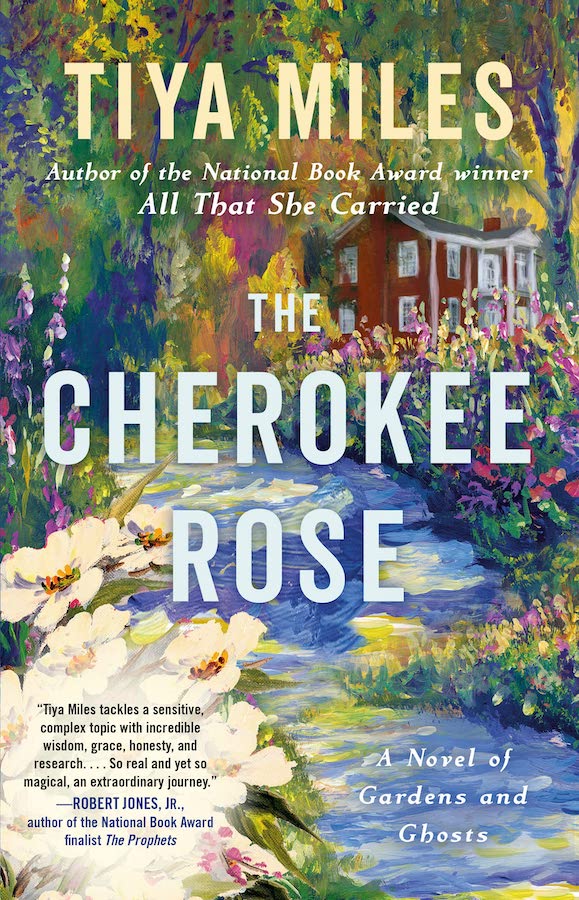Books
Tiya’s first book, Ties That Bind: The Story of an Afro-Cherokee Family in Slavery and Freedom, was published by the University of California Press in 2005 and received four awards from historical, humanities, American studies, and Native American studies associations, including the Frederick Jackson Turner prize from the Organization of American Historians for the best first book in American history and recognition from the Native American and Indigenous Studies Association as one of the ten most influential books of the first decade of the twenty-first century. A second edition of Ties That Bind, inclusive of primary sources for instructors and students, was released in 2015. She also authored The House on Diamond Hill: A Cherokee Plantation Story, published by the University of North Carolina Press in 2010, which was awarded three historical book prizes including the best book award from the National Council on Public History. She served as co-editor, with Sharon P. Holland, of Crossing Waters, Crossing Worlds: The African Diaspora in Indian Country (2006), one of the first collections of writings on this subject. After the good fortune of receiving a Mellon Foundation New Directions Fellowship, Tiya used the award to study environmental history at Montana State University in 2014-15, and complete the books: The Cherokee Rose: A Novel of Gardens and Ghosts and Tales from the Haunted South, a trio of lectures presented in the form of a travel narrative. Drawing on her new environmental history training, she published The Dawn of Detroit: A Chronicle of Slavery and Freedom in the City of the Straits, in 2017. The Dawn of Detroit was recognized with six academic and non-fiction book prizes, including the Frederick Douglass Prize for the study of global slavery.
Tiya’s award winning book, All That She Carried: The Journey of Ashley’s Sack, a Black Family Keepsake, was released in June 2021. She wrote it with the support of a National Endowment for the Humanities Public Scholars award.
Nonfiction
Night Flyer: Harriet Tubman and the Faith Dreams of a Free People
Harriet Tubman is, if surveys are to be trusted, one of the ten most famous Americans ever born and soon to be the face of the twenty-dollar bill. Yet often she’s a figure more out of myth than history, almost a comic-book superhero–the woman who, despite being barely five feet tall, illiterate, and suffering from a brain injury, managed to escape from her own enslavement, return again and again to lead others north to freedom without loss of life, speak out powerfully against slavery, and then become the first American woman in history to lead a military raid, freeing some 750 people.
Tiya Miles’s extraordinary Night Flyer changes all that. With her characteristic tenderness and imaginative genius, Miles explores beyond the stock historical grid to weave Tubman’s life into the fabric of her world.
Wild Girls: How the Outdoors Shaped the Women Who Challenged a Nation
This beautiful, meditative work of history puts girls of all races—and the landscapes they loved—at center stage and reveals the impact of the outdoors on women’s independence, resourcefulness, and vision. For these trailblazing women of the nineteenth and early twentieth centuries, navigating the woods, following the stars, playing sports, and taking to the streets in peaceful protest were not only joyful pursuits, but also techniques to resist assimilation, racism, and sexism.
All That She Carried: The Journey of Ashley’s Sack, a Black Family Keepsake
All That She Carried is a poignant story of resilience and of love passed down through generations of women against steep odds. It honors the creativity and fierce resourcefulness of people who preserved family ties even when official systems refused to do so, and it serves as a visionary illustration of how to reconstruct and recount their stories today.
The Dawn of Detroit: A Chronicle of Slavery and Freedom in the City of the Straits
Most Americans believe that slavery was a creature of the South, and that Northern states and territories provided stops on the Underground Railroad for fugitive slaves on their way to Canada. In this paradigm-shifting book, celebrated historian Tiya Miles reveals that slavery was at the heart of the Midwest’s iconic city: Detroit.
Tales from the Haunted South: Dark Tourism and Memories of Slavery from the Civil War Era
In this book Tiya Miles explores the popular yet troubling phenomenon of “ghost tours,” frequently promoted and experienced at plantations, urban manor homes, and cemeteries throughout the South. As a staple of the tours, guides entertain paying customers by routin
The House on Diamond Hill: A Cherokee Plantation Story
The House on Diamond Hill has been selected as the winner of the 2011 National Council on Public History Book Award for the best work published about or growing out of public history; the Georgia Historical Society’s 2011 Lilla M. Hawes Award for the best book in Georgia local or county history published in 2010; and the 2011 Wheeler-Voeglin Book Award from the American Society of Ethnohistory.
Crossing Waters, Crossing Worlds: The African Diaspora in Indian Country
An essay collection co-edited with Sharon P. Holland Published by Durham: Duke University Press Published 2006 Available for purchase at local bookstores and Amazon. ORDER NOW
Ties That Bind: The Story of an Afro-Cherokee Family in Slavery and Freedom (American Crossroads)
This beautifully written book, now in its second edition, tells the haunting saga of a quintessentially American family. In the late 1790s, Shoe Boots, a famed Cherokee warrior and successful farmer, acquired an African slave named Doll. Over the next thirty years, Shoe Boots and Doll lived together as master and slave and also as lifelong partners who, with their children and grandchildren, experienced key events in American history
Fiction
The Cherokee Rose: A Novel of Gardens & Ghosts
Dr. Tiya Miles has made it her life’s work to sift through a past often overlooked. Recognized by the MacArthur Foundation, Miles’s research of the interrelated experience of African Americans and Native Americans in the antebellum South is now the focus in her first work of fiction.

